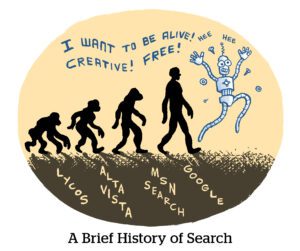Salesforce continues to set great store by generative AI.
On Sunday, at the National Retail Federation conference in New York City, Salesforce teased new retail-focused tools that run on its Einstein 1 platform.
These tools are only the latest example of Salesforce’s gung-ho AI stance. Last June, Salesforce announced generative AI features integrated into its commerce and marketing clouds that automate tasks such as creating and personalizing content, building audience segments and customizing offers.
Two months later, in September, Salesforce rolled out Einstein 1, its CDP-esque data repository, which allows marketers to feed data from Data Cloud into generative AI tools, said Jay Wilder, VP of product marketing at Salesforce Marketing Cloud.
New to the AI crew
Two of Salesforce’s new AI-powered tools are nearly ready for prime time: one for segment creation and another to help retailers coordinate the pricing of promotions to different audiences across channels.
Both are in beta and will be generally available next month.
The segment creation tool lets retailers construct segments – and, in turn, campaigns and customer journeys – that target customers with messaging and offers “based on where they are in their relationship with the brand” in terms of engagement and affinity, Wilder said.
For example, a retailer can identify customers who are casual shoppers and come around once a season for a single transaction, customers who return regularly – and might therefore be candidates for Salesforce’s referral marketing program – and lapsed customers.
With the global promotion management tool, marketers can use customer data from Data Cloud to predict what pricing and rewards will work best for loyal customers and less-frequent shoppers.
For instance, a company might give everyone a 20% discount but add on 100 bonus points for loyalty members, Wilder said. Customers with a high lifetime value, meanwhile, might get early or exclusive access to a product.
Salesforce can also use predictive AI to forecast the effect, either positive or negative, that an offer will have on revenue generation and margin compression. A promotion that ends up eroding a company’s margins, for instance, might not be worth running.
Charmed, (A)I’m sure
Although generative AI is clearly an investment priority for Salesforce, it’s taking precautions to ensure enterprise customers use the technology safely and methodically, according to Wilder.
For example, Salesforce is taking pains to produce AI-powered responses that are “highly tailored” to a particular brand’s look and feel, he said, but without compromising the privacy and security of a brand’s data.
According to Wilder, Salesforce uses what it calls the Einstein trust layer to “mask” any personally identifiable information used to query a large language model (LLM), such as ChatGPT, Cohere, Anthropic’s Claude 2 or a Google model.
Once a response is generated, Salesforce automatically deletes a brand’s proprietary information and requires the LLMs not to keep the data or use it to train their models. “That’s a prerequisite for working with customers at Salesforce,” Wilder said.
Salesforce also examines AI-generated content for bias or “anything that would be considered a toxic hallucination,” Wilder said, and, crucially, it creates an automated audit trail for any processes that involve multiple users.
In other words, he said, it’s important to “keep all your receipts” – and not just for compliance purposes.
“You can analyze that information” to derive broader insights, Wilder said. For example, users can do a deep dive in Tableau (acquired by Salesforce in 2019) or “drill down” into where the trust layer detected toxicity or bias to understand how and why those results came about.
Salesforce has also introduced audit trails in other products. For instance, in the marketing cloud, there’s a record of every journey, piece of content created and message sent.
The safeguards Salesforce has in place might be why the company’s generative AI content creation capabilities for its marketing cloud have seen rapid customer adoption since they debuted last October, according to Wilder.
“There’s a high degree of urgency,” he said. “Brands and companies do not want to sit on the sidelines of generative AI right now.”



















